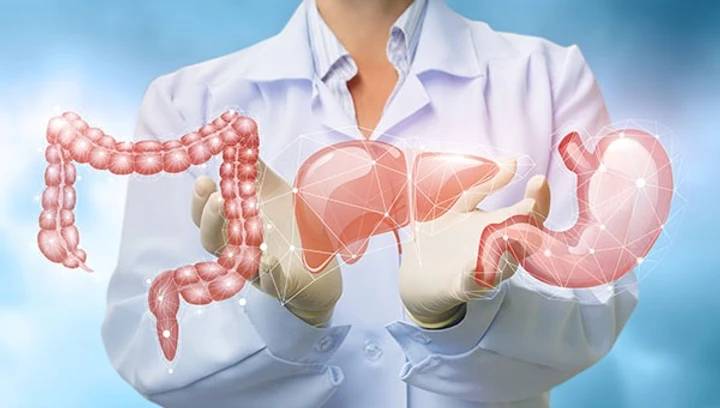
- 23/02/2021
- Dr. Samrat Jankar
- 0 Comments
- Blog
6 Signs You Need to Visit a Gastroenterologist
Your general physician may instruct you to visit a gastroenterologist if you suffer from symptoms such as:
- Abnormal bowel movements
- Rectal bleeding
- Frequent heartburn
- Abdominal pain
- Bloating
- Trouble swallowing
If you’re experiencing mild symptoms, you should visit your physician for preliminary testing. They will determine whether you should visit a gastroenterologist.
Who is a Gastroenterologist?

A Gastroenterologist diagnoses the normal function and conditions of the gastrointestinal organs:
- Oesophagus
- Gallbladder
- Bile ducts
- Liver
- Stomach
- Small intestine
- Pancreas
- Colon
- Rectum
Disorders Managed by Gastroenterologists
Some of the common conditions examined and treated by gastroenterologists include the following:
- Cancer-Gastrointestinal, Liver, Pancreatic, Colorectal
- Irritable Bowel Syndrome (IBS)
- Celiac Disease
- Inflammatory Bowel Disease
- Gallbladder Disease
- GERD
- Hemorrhoids
- Polyps
- Ulcers
- Pancreatitis
Some of the signs you should consider a consultation with a gastroenterologist include:
1. Abnormal Bowel Movements
Constipation:
If you get less than three bowel movements per week, then constipation may be due to:
- Blockage
- Neurological problems
- Muscular or hormonal malfunction
- Diet or other factors
Your gastroenterologist will help you determine the cause of constipation.
Diarrhea:
If you experience diarrhea for a longer time, it could be due to:
- Bacteria
- Virus
- Parasite
- Lactose intolerance
- Reaction to a medication
- Signs of other digestive conditions, such as Crohn’s disease, ulcerative colitis, etc.
2. Rectal Bleeding
Causes of blood in the stools can differ in severity. But generally, indicate bleeding somewhere in your digestive tract. An anal fissure, hemorrhoids may cause it, or it could be something requiring medical attention, such as cancer.
3. Frequent Heartburn
Occasional heartburn is probably nothing to be concerned about. But constant heartburn may indicate Gastroesophageal Reflux Disease (GERD), Barrett’s Oesophagus, or even oesophageal cancer.
If acid reflux occurs frequently, you may be diagnosed with GERD. Your gastroenterologist may prescribe medication to relieve your discomfort and have testing to confirm the diagnosis.
4. You’re of 50+ Years Age to be Routinely Screened for Colorectal Cancer
Screening is a preventative measure and should be done before symptoms occur. Colorectal cancer usually begins as precancerous polyps that can be diagnosed and removed by colonoscopy. Moreover, the U.S. Preventative Services Task Force (USPSTF) recommends that people aged 50 to 75 be screened for colorectal cancer.
5. Abdominal Pain and Bloating
Infrequent mild abdominal pain and bloating may not be the cause enough to consult a specialist. But, if abdominal pain occurs after every meal or is accompanied by nausea or painful bowel movements, please inform your physician. As they may decide to refer you to a gastroenterologist for further investigations.
6. Oesophageal Pain or Difficulty Swallowing
Specific diseases may cause difficulty or inability to swallow. If you suffer from constant oesophageal pain or difficulty swallowing, your gastroenterologist may carry an upper endoscopy to diagnose the cause of your pain and start the treatment.
Dr. Samrat Jankar will help you restore your optimal digestive health. Moreover, he provides high-quality endoscopic and colonoscopic services. For more information or to schedule an appointment, contact us today!
